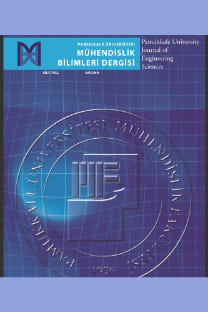Türkçe ses tanıma sistemlerinde dil modeli boyutunun doğruluk oranına etkisi
Bu çalışmanın hedefi, Dil Modeli (DM) üretmek için kullanılan metin derlem büyüklüğünün, Ses Tanıma Sistemleri (STS) üzerindeki etkisini araştırmaktır. Çalışmada ayrıca DM elde etmek için yapılması gereken işler detaylı olarak anlatılmaktadır. DM istatistiksel olarak oluşturulduğundan, eğitim verisinde bulunan veri miktarı arttıkça STS doğruluğunun artması beklenmektedir. Fakat Türkçe gibi sondan eklemeli dillerde, kullanılan derlemin büyüklüğünün hangi noktaya kadar sistemin doğruluk oranı üzerinde etkin olacağı önem taşımaktadır. Bu çalışmada, toplanan farklı büyüklükteki metin derlemleri ile konuşma tanıma sisteminde Dil Model Ağırlığı (DMA) ve Aktif Token Sayısı (ATS) parametrelerini değiştirerek yapılan deneyler yer almaktadır. Bu çalışma DM boyutu büyüdükçe Türkçe konuşma tanıma başarımının yükseldiğini göstermektedir. Ancak, DMA ve ATS değerlerinde yapılan ayarlamaların tanıma başarımına olumlu bir etki yaptığı gözlemlenememiştir.
Anahtar Kelimeler:
Dil modeli, Ses tanıma sistemleri, Dil modeli ağırlığı, Aktif token sayısı
How does language model size effects speech recognition accuracy for the Turkish language?
In this paper we aimed at investigating the effect of Language Model (LM) size on Speech Recognition (SR) accuracy. We also provided details of our approach for obtaining the LM for Turkish. Since LM is obtained by statistical processing of raw text, we expect that by increasing the size of available data for training the LM, SR accuracy will improve. Since this study is based on recognition of Turkish, which is a highly agglutinative language, it is important to find out the appropriate size for the training data. The minimum required data size is expected to be much higher than the data needed to train a language model for a language with low level of agglutination such as English. In the experiments we also tried to adjust the Language Model Weight (LMW) and Active Token Count (ATC) parameters of LM as these are expected to be different for a highly agglutinative language. We showed that by increasing the training data size to an appropriate level, the recognition accuracy improved on the other hand changes on LMW and ATC did not have a positive effect on Turkish speech recognition accuracy.
Keywords:
-,
___
- Aksungurlu T, Parlak S, Sak H, Saraclar M. "Comparison of language modeling approaches for Turkish broadcast news". IEEE 16th Signal Processing, Communication and Applications Conference, Aydın, Turkey, 20-22 April 2008.
- Korkmazsky F, Jojic O, Shevade B. "Boosting of speech recognition performance by language model adaptation". IEEE Aerospace Conference, Big Sky, MT, USA, 3-10 March 2007.
- Salor Ö, Pellom BL, Ciloglu T, Hacioglu K, Demirekler M. "On developing new text and audio corpora and speech recognition tools for the Turkish language". 7th International Conference on Spoken Language Processing (INTERSPEECH), Denver, CO, USA, 16-20 September 2002.
- Suzuki M, Kajiura Y, Ito A, Makino S. "Unsupervised language model adaptation based on automatic text collection from WWW". 9th International Conference on Spoken Language Processing (INTERSPEECH), Pittsburgh, PA, USA, 17-21 September 2006.
- Klakov D. “Language Model adaptation for tiny adaptation corpora”, 9th International Conference on Spoken Language Processing (INTERSPEECH), Pittsburgh, PA, USA, 17-21 September 2006.
- Dai J. "Hybrid approach to speech recognition using hidden Markov models and Markov chains". Vision, Image and Signal Processing, 141(5), 273-279, 1994.
- Woodland PC, Johnson SE, Jourlin P, Sparck Jones K. "Effects of out of vocabulary words in spoken document retrieval". 23rd Annual International ACM SIGIR Conference on Research and Development in Information Retrieval, Athens, Greece, 24-28 July 2000.
- Aksoylar C, Mutluergil SO, Erdogan H. "The anatomy of a turkish speech recognition system". IEEE 17th Signal Processing and Communications Applications Conference, Antalya, Turkey, 09-11 April 2009.
- Chen Z, Lee KF, Li M."Discriminative training on language model". 6th International Conference on Spoken Language Processing (INTERSPEECH), Beijing, China, 16-20 October 2000.
- Adda-Decker M, Adda G, Gauvain J, Lamel L. "Large vocabulary speech recognition in French". IEEE International Conference on Acoustics, Speech and Signal Processing, Phoenix, AZ, USA, 15-19 March 1999.
- Adda G, Adda-Decker M, Gauvain JI, Lamel L. "Text normalization and speech recognition in French". 5th European Conference on Speech Communication and Technology (Eurospeech), Rhodes, Greece, 22-25 September 1997.
- Zhuang L, Bao T, Zhu X, Wang C, Naoi S. "A Chinese OCR spelling check approach based on statistical language models". IEEE International Conference on Systems, Man and Cybernetics, Den Haag, the Nederland, 10-13 October 2004.
- Can F, Kocberber S, Baglioglu O, Kardas S, Ocalan HC, Uyar E. "New event detection and topic tracking in Turkish". Journal of the American Society for Information Science and Technology, 61(4), 802-819, 2010.
- Isotani R, Matsunaga S. "Speech recognition using a stochastic language model integrating local and global constraints". ARPA Spoken Language Technology (SLT) Workshop, Plainsboro, NJ, USA, 1994.
- Stolcke A. "SRILM-An Extensible language modeling toolkit". 7th International Conference on Spoken Language Processing (INTERSPEECH), Denver, CO, USA, 16-20 September 2002.
- Yazgan A, Saraclar M. "Hybrid language models for out of vocabulary word detection in large vocabulary conversational speech recognition". IEEE International Conference on Acoustics, Speech and Signal Processing (ICASSP), Montreal, Quebec, Canada, 17-21 May 2004.
- ISSN: 1300-7009
- Başlangıç: 1995
- Yayıncı: PAMUKKALE ÜNİVERSİTESİ
Sayıdaki Diğer Makaleler
Bir elektronik tasarım firmasında hata takip ve proje yönetim sistemi uygulaması
İşbirlikçi filtreleme için yeni tahminleme yöntemleri
Mobil tabanlı optik form değerlendirme sistemi
Asım Sinan YÜKSEL, İbrahim Arda ÇANKAYA, Mehmet Ali YALÇINKAYA, Nurullah ATEŞ
Kablosuz algılayıcı ağ tabanlı taşınabilir EKG tasarımı ve uygulaması
Gül Fatma TÜRKER, İlhan TARIMER
Twitter verileri ile duygu analizi
Eyüp Sercan AKGÜL, Caner ERTANO, Banu DİRİ
Türkçe ses tanıma sistemlerinde dil modeli boyutunun doğruluk oranına etkisi
Behnam ASEFİSARAY, Erhan MENGÜŞOĞLU, Murat HACIÖMEROĞLU, Hayri SEVER
Makine öğrenmesi yöntemlerinin görüş madenciliğinde kullanılması üzerine bir literatür araştırması
